GUADALAJARA, Jalisco – In the heart of Mexico’s second-largest city, next to a cornfield planted in the median of a major thoroughfare, Radio Coamil was born, in its first broadcast addressing the growing tension around the criminalization of the unauthorized practice of urban agroecology in public spaces.
The new program is the initiative of the Federalismo Coamil Collective, a group formed around a coamil, or milpa, which is a traditional cornfield and garden, planted on the median of a major thoroughfare in this city of 5 million.
In the first broadcast, which joined forces with Coyotera Community Radio, speakers addressed the legal prohibition of planting in public spaces, specifically the proposed Urban, Pollinator and School Garden Law, currently under consideration by the Jalisco State Congress.
Para leer esta historia en español haz click AQUÍ
Every summer during the rainy season, the Federalismo Avenue cornfield has become a hub of community agro-ecological and cultural activity since it was first planted eight years ago. Recently, a group of young people planted their own coamil six blocks south on the same avenue.
On Sunday, July 23, between the composting area and the month-old cornfield, as cyclists and cars whizzed past, this Radio Coamil program was hosted by Haydé Navarro from Coyotera Radio Comunitaria and Melina Gil from Coamil Federalismo, and featured guests from both coamils, as well as other agroecological spaces, where they shared their position on this issue.
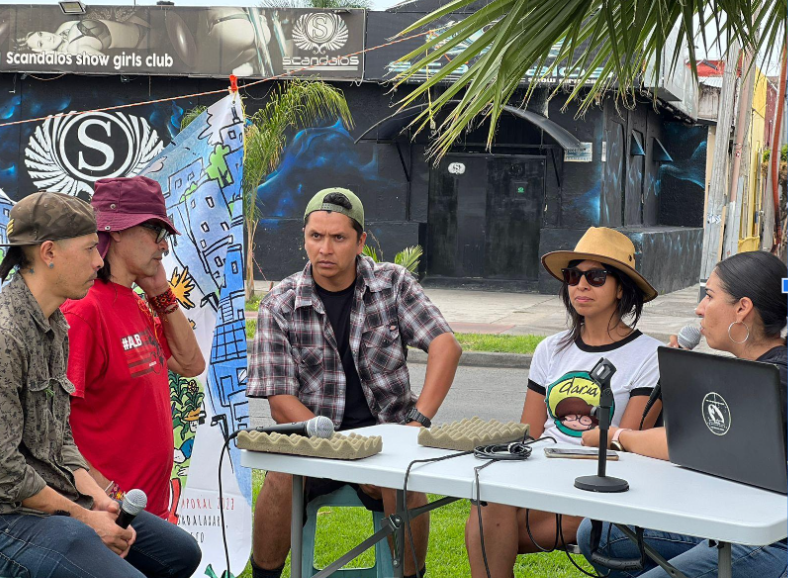
Melina Gil recalled that on the night of July 14, three young people from Huerto Rabia y Memoria (Rage and Memory Garden) on Federalismo and Juan Manuel Street were detained for several hours by the Guadalajara police for planting on that public space.
“This is part of this attempt to dismantle these types of organizations that have been working for years,” added Melina, who called the police action “disproportionate.”
With respect to the law, Melina commented, “this law is curious because in the explanatory statement it refers us to a situation of wanting to promote urban agriculture, but in the end in the wording it establishes coercive situations, in which the articles tell you ‘You’re going to be punished.’”
Antonio Aguirre, from the Coamil Federalismo Collective, states that in the drafting of this law, “the voices of the people who have been carrying out urban agriculture activities were not considered. They have not listened to us. We only found out that this initiative was in place and that’s it.”
Within the program, Sarett Blancas from the Tekia Network (Tequio or tekio is the native Nahuatl word for community-formed shared work groups) commented “knowing that there is a law against our food sovereignty surprised us and put us on alert.” He added that the day before they had organized a tequio within the Urban Agriculture Network of the Guadalajara Metropolitan Area (RAUZMG), where participants expressed their rejection of the proposed law encouraging the criminalization of planting in public spaces. A new hashtag began to circulate, in a Spanish play on words: “Sembrar no es un delito, sembrar es un deleite” (Sowing is not a crime, sowing is a delight.”)
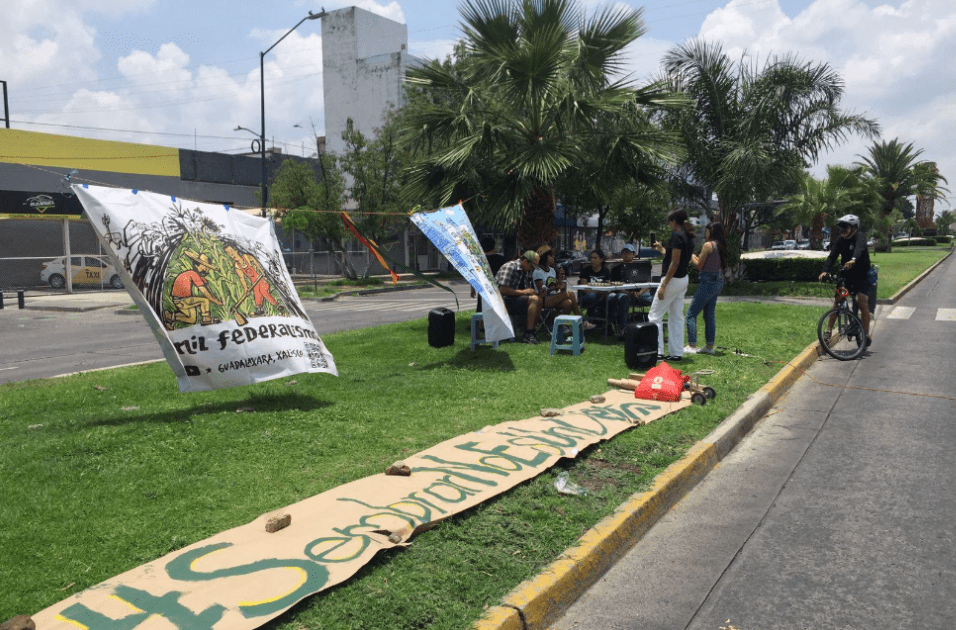
On July 18 RAUZMG issued a “Collective statement against criminalization for planting in the public space of Guadalajara, Mexico.” Nearly a hundred groups – local, national and even international – have joined, as well as more than 350 individuals, whom both the Coamil and the RAUZMG invites the public to continue joining. You can sign yourself or add your organization at bit.ly/ComunicadoSembrarNoEsUnDelito.
“It is time to somehow show ourselves as a collective, as a network, as friends, as people who are concerned about space, as people who are concerned about corn, to go out on the streets safely. We’ve been chatting for a while in a calm way to bring our children, and now I think it is time to be able to influence public policy in a very concrete way,” added Antonio Aguirre, a longtime Coamil Federalismo participant.
Mayra Fregoso, from the Huentitán Agroecological and Social Movement, expressed: “When I learned about this law, I said to myself, ‘Someone wants to control us.’ In my experience, living all my life in this territory, I have seen many transformations in public spaces that do not benefit the population. This law is going to attempt to modify many of the social dynamics that already exist, and specifically in planting, promoting a commodification of planting. And it would eliminate many of the concepts that have been considered in these spaces, such as agroecology, the diversity of species, and the people who are permitted to inhabit those spaces.
Carlos Barajas, the “Biombo,” from the Huitzil Community Circle, affirms: “I think those who are here, those who are resisting… In the end, all of us, whether we make cornfields or not, we all eat and we all breathe. So this fight is for life, it is not for a group. It is a fight for dignity and for the right to eat.”
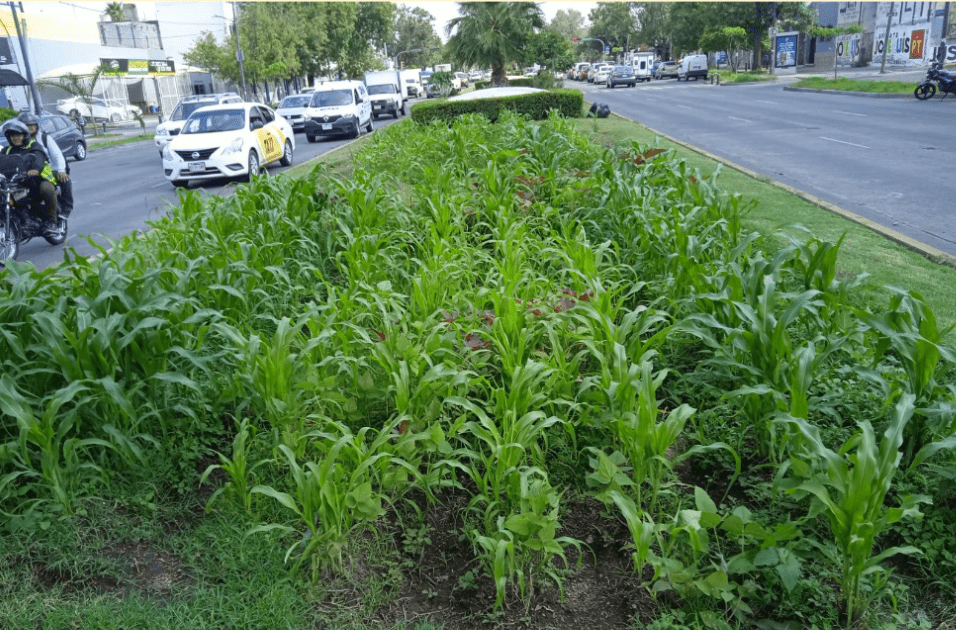
To end this radio program, Melina Gil, from the Coamil Federalism Collective, recalled that “this initiative is publicly on the page of the Jalisco State Congress; anyone can enter, and download it in the initiatives section. It is not very extensive, you can read it, you can find out for yourselves what it is about, what articles are coming.” And she sent a message to “the deputies and deputies, really, legislate critically.”
She invited the general population to adhere to the statement and to be aware of the networks of both Coamil Federalismo and RAUZMG, as well as other groups, so that they are aware of the following actions in defense of these spaces and activities that for years have been part of their lives. bit.ly/ComunicadoSembrarNoEsUnDelito
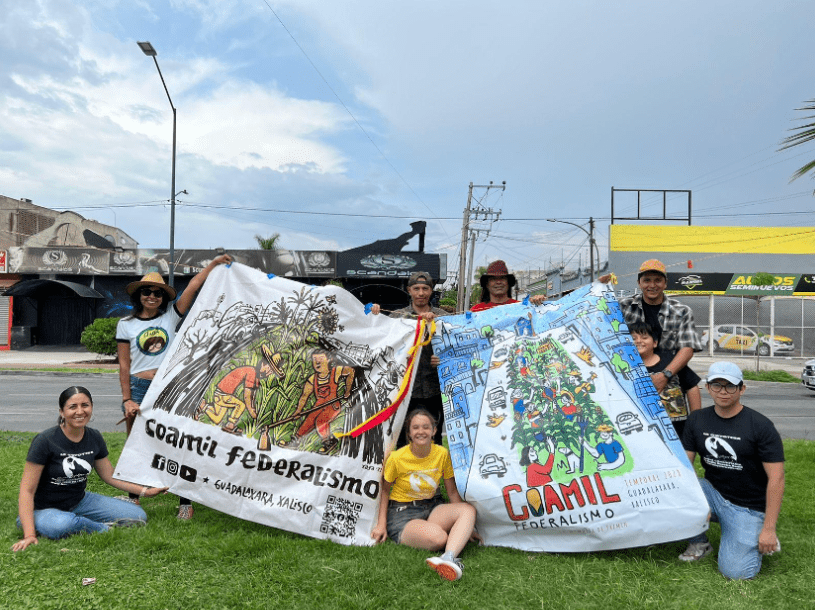
We share this complete 70-minute broadcast of the Radio Coamil program, carried out with the collaboration of Radio Bocina, from Coyotera Radio Comunitaria, on the same median where the Coamil Federalismo compost bin and milpa are located.
For the second time, the Guadalajara police prevent the planting of corn
One week after the first broadcast on Radio Coamil, the Guadalajara police once again invaded the Rabia y Memoria Garden, where the Sowing and Dignity Festival was taking place, to prevent people from that group and neighbors from planting in that public space, located on Avenida Federalismo, at its intersection with Calle Juan Manuel, six blocks from Coamil Federalismo. On this occasion there were no detainees, but there was intimidation so that they would not sow or continue to move the earth, since if they did they could be detained.
#SembrarNoEsUnDelito #SowingIsARight
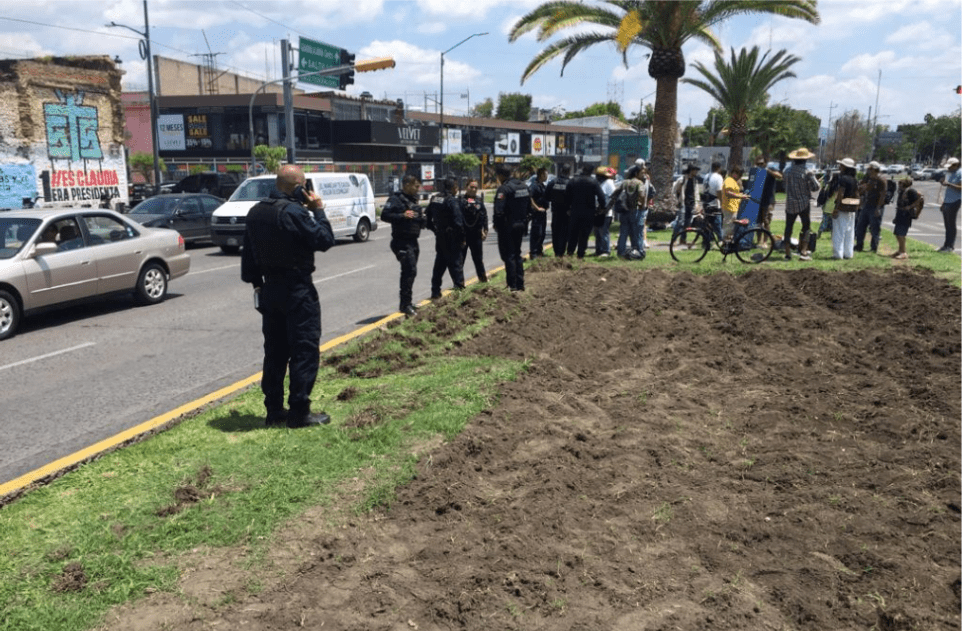
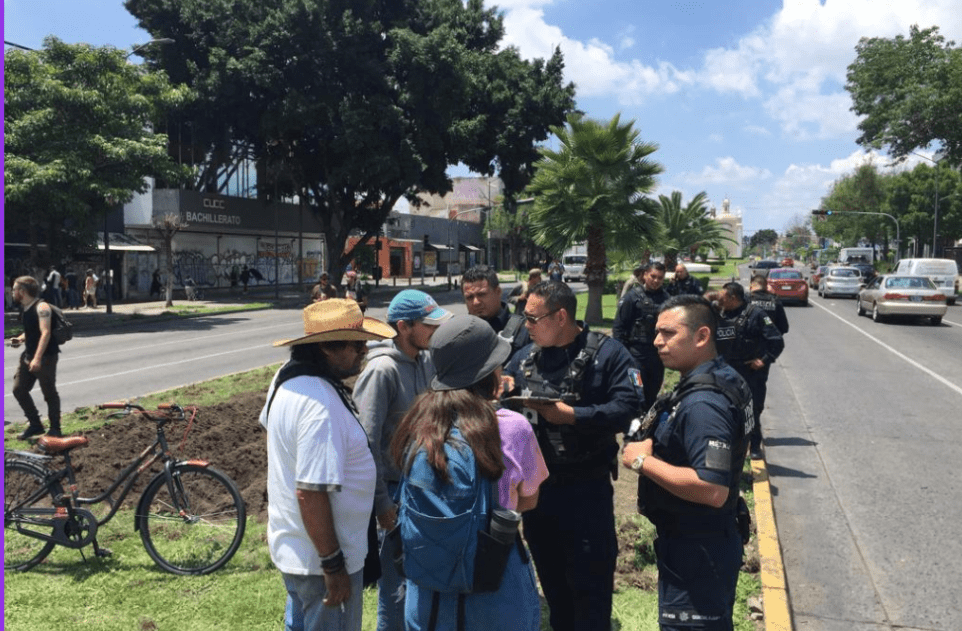
Video of the July 30 police intervention at the Rage and Memory Garden by Victor Ibarra
#SembrarNoEsUnDelito #SembrarEsUnDerecho
Photos: Joss Navarro, Víctor Ibarra, Antonio Aguirre, Ángel Román